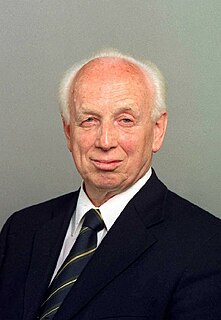
Árpád Göncz was a Hungarian liberal politician, who served as President of Hungary from 2 May 1990 to 4 August 2000. Göncz played a role in the Hungarian Revolution of 1956. He was also founding member of the Alliance of Free Democrats (SZDSZ) and Speaker of the National Assembly of Hungary before becoming President. He was Hungary's first freely elected head of state, as well as the first in 42 years who was not a Communist or a fellow traveler.

Viktor Mihály Orbán is a Hungarian politician serving as Prime Minister of Hungary since 2010. He also served as Prime Minister from 1998 to 2002. He is the present leader of the national conservative Fidesz party, a post he has held since 2003 and, previously, from 1993 to 2000.
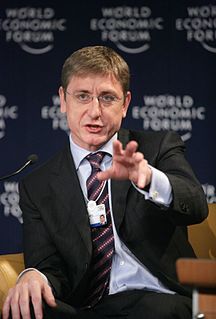
Ferenc Gyurcsány is a Hungarian entrepreneur and politician. He was Prime Minister of Hungary from 2004 to 2009. Prior to that, he served as Minister of Youth Affairs and Sports between 2003 and 2004.

Péter Boross is a Hungarian politician, former member of the Hungarian Democratic Forum (MDF), who served as Prime Minister of Hungary from December 1993 to July 1994. He assumed the position upon the death of his predecessor, József Antall, and held the office until his right-wing coalition was defeated in election by the Hungarian Socialist Party (MSZP), which was led by his successor Gyula Horn. Prior to his premiership, Boross functioned as Minister of Civilian Intelligence Services (1990) and Minister of the Interior (1990–1993). He was also a Member of Parliament from 1994 to 1998 and from 2006 to 2009.
Elections in Hungary are held at two levels: general elections to elect the members of the National Assembly and local elections to elect local authorities. European Parliament elections are also held every 5 years.

The Senate is the upper chamber of Parliament in Burundi. It consists of no fewer than 37 and no more than 54 members who serve 5-year terms. The current Senate was elected on 24 July 2015 and consists of 43 members.

Parliamentary elections were held in Hungary on 9 April 2006, with a second round of voting in 110 of the 176 single-member constituencies on 23 April. The Hungarian Socialist Party emerged as the largest party in the National Assembly with 186 of the 386 seats, and continued the coalition government with the Alliance of Free Democrats. It marked the first time a government had been re-elected since the end of Communist rule.

The 2007 Turkish presidential election refers to two attempts to elect the country's 11th president, to succeed Ahmet Necdet Sezer. The most likely candidate for president was Abdullah Gül. Turkey's presidential office is regarded as the guardian of the country's secular system; the fact that Gül's wife wears the Islamic headscarf, as well as his own history in political Islam, turned the elections into a political crisis.
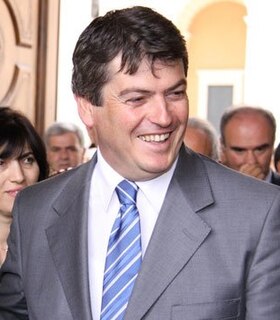
Indirect presidential elections were held in Albania on 20 and 27 June, 8, 11, 14, and 20 July, the sixth such elections since the collapse of the communist regime in 1991.

János Áder is a Hungarian politician and lawyer who has been the President of Hungary since 10 May 2012. Previously he served as Speaker of the National Assembly of Hungary from 1998 to 2002 and deputy chairman of the European Parliament Committee on the Environment, Public Health and Food Safety from January to May 2012.

József Torgyán was a Hungarian lawyer and politician, chairman of the Independent Smallholders' Party (1991-2002), Deputy Prime Minister and Minister of Agriculture and Rural Development (1998-2001) in the Government of Viktor Orbán.
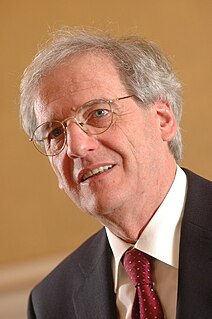
An indirect presidential election was held in Hungary on 6-7 June 2005. The main opposition party Fidesz's nominee, the former President of the Constitutional Court László Sólyom was elected President of Hungary.
Géza Gyimóthy is a former Hungarian politician, who served as one of the Deputy Speakers of the National Assembly of Hungary from June 18, 1998 to September 19, 2001.
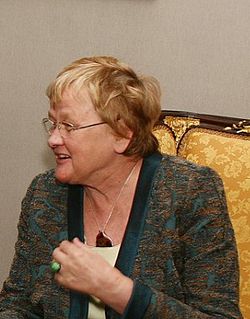
Estonian presidential elections, 2006 took place over four rounds, which were held on 28 and 29 August, and 23 September 2006. The first three rounds of the presidential election were held within the Riigikogu, which is Estonia's Parliament, as specified under electoral law. The two top candidates, Ene Ergma and Toomas Hendrik Ilves, were not elected because they did not obtain the required two-thirds of the votes in the Riigikogu.
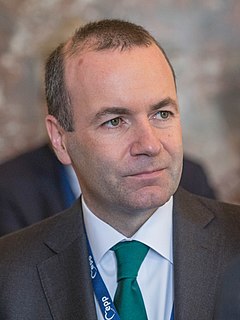
The next elections to the European Parliament are expected to be held between 23 and 26 May 2019. A total of 751 Members of the European Parliament (MEPs) currently represent more than 512 million people from 28 member states. In February 2018, the European Parliament voted to decrease the number of MEPs from 751 to 705 if the United Kingdom withdraws from the European Union on the current schedule.
The 2015–16 Nemzeti Bajnokság I, also known as NB I, is the 117th season of top-tier football in Hungary. The league is officially named OTP Bank Liga for sponsorship reasons. The season began 17 July 2015 and will conclude on 8 May 2016. Videoton are the defending champions having won their second Hungarian championship last season.

An indirect presidential election was held in Hungary on 13 March 2017. János Áder was elected President of Hungary for a second term.
The first indirect presidential election was held in Hungary on 3 August 1990, following the transition to multy-party democracy. Árpád Göncz (SZDSZ), Speaker of the National Assembly and acting head of state, was elected President with an absolute majority.

Tamás Sneider is a Hungarian politician, who has been leader of the Jobbik since May 2018. Before that he was one of the vice-presidents of the party from 2009 to 2018. He is a member of the parliament since 2010. Between 2010 and 2014 he served as the president of the Committee of Youth, Social and Family Policies of the Hungarian National Assembly. Since 2014, he is a deputy speaker of the National Assembly and member of the Committee on Social Welfare.


